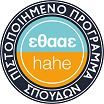This is an academic unit established with Government Gazette 4440 / 08.10.2019. It is administered by a professor of the Department, who is elected by the General Assembly, in accordance with the provisions for the election of laboratory directors, among the professors who have a renowned scientific, organizational, educational or social work on the issues of the Museum. The mission of the Museum is:
- The collection, classification, rescue and highlighting of evidence from the history of Modern Greek and International Education (maps, desks, textbooks, curricula, photographs, teaching aids, speeches, circulars, decrees, laws, minutes, etc.) .
- The support of scientific research and the transmission of academically cultivated knowledge to the university community and the wider society.
- The research and study of the educational school past and its connection with the current Greek and international educational reality.
- The internship (practicum) of students and especially of the relevant pre- and postgraduate courses (Modern History, History of Education, Comparative Pedagogy, Sociology of Education, Educational Policy).
- The guided tour of students of Primary and Secondary Education
- The organization of Museum Pedagogy programs and seminars
- The organization and realization of training seminars for teachers in Museum Pedagogy.
- The support of postgraduate programs in History of Education and Museum Pedagogy and finally,
- The enhancement of the extroversion of the Pedagogical Department of Educational Sciences and Social Work and the University of Patras in general.
For the fulfillment of its purposes the Museum:
- Creates didactic and research collections of objects and relevant supervisory and educational material from Greece and abroad, which it maintains in exhibition spaces or specially designed storage areas.
- Accepts by permanent or temporary borrowing items from other collections which will be exhibited on its premises.
- Collaborates with affiliated organizations in Greece and abroad.
- Creates and develops activities for the maintenance and utilization of its material.
- Organizes periodic exhibitions on topics related to Education and educational institutions independently but also in collaboration with affiliated organizations.
- Organizes training programs aimed at both young people and the general population.
- Conducts scientific museological research, related to Education and the History of Education.
- It has its permanent and periodic exhibition spaces for visits of schools and of the public.
- Organizes lectures, screenings, exhibitions, educational and research programs and other events that are considered to help spread knowledge and love for the arts, history and sciences.
- Creates an Association of Friends of the Museum, which support the activities and programs of the Museum and actively participate in its events.
The collections of the Museum of Education of Patras University are organized and classified according to thematic areas in the fields of Education.
The primary obligation of the Museum is the maintenance of the good condition of its Permanent Collections and the provision of appropriate conditions for the storage, utilization and exhibition of the objects of the collections.
Records, photographs and other documentation material are compiled for the permanent collections at the Education Museum of Patras University. The documentation concerns the conventional and digitized process of collection, organization, storage and distribution of information material.
The Education Museum of Patras University is housed in a specially designed area of the University facilities that has been granted for this purpose and in general in areas managed by Patras University.
The responsibility for the custody and maintenance of the Museum’s objects lies with the institutionalized competent bodies of Patras University. The Museum can lend for a certain period objects from its collections to other similar institutions with a suggestion of its management and after a decision of the Senate of Patras University.

